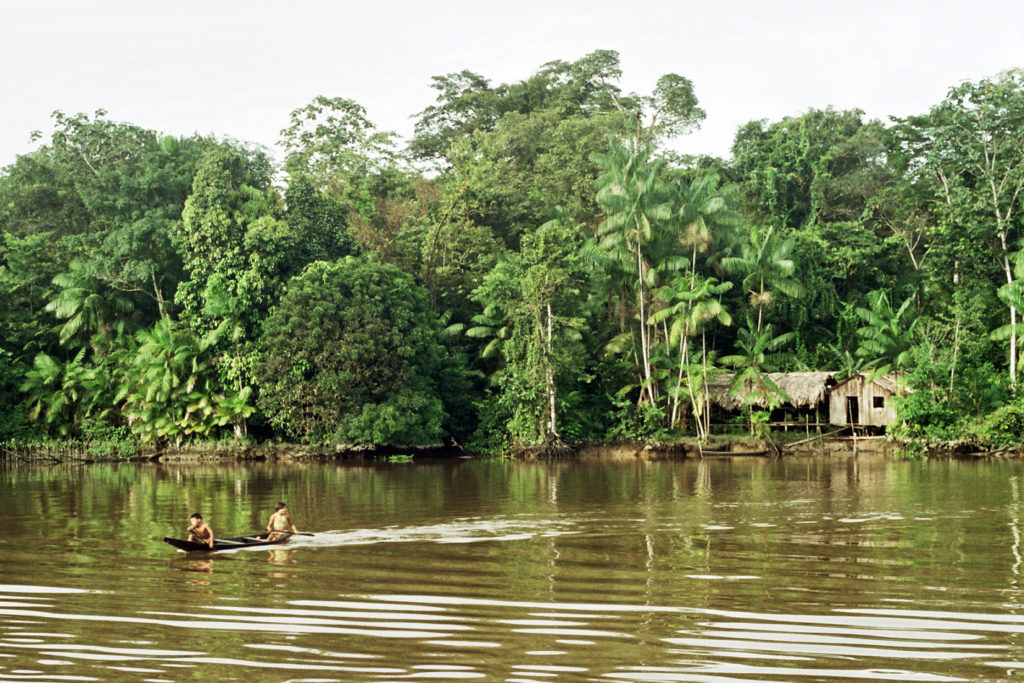
Kristina Lyons, Associate Professor of Anthropology, has dedicated many years to visiting the Colombian Amazon to research the story of the land’s suffering, as well as its enduring practical importance to its residents. Following exhaustive fieldwork, Lyons has already published a book unveiling alarming findings that are even worse than expected.
Lyons, affiliated with the School of Arts & Sciences at the University of Pennsylvania, first visited Colombia in 2004 in the role of a human rights activist. Her initial mission involved examining the policy ramifications of the U.S. war on drugs, initiated in 1999 under then-President Bill Clinton and known as “Plan Colombia.”
She was particularly interested in studying the diverse soils of the Amazon, including the renowned “salty soils,” characterized by concentrated nutrients and salts on the surface. At the time, she explained that local communities assumed her focus was on dark earth soils, a popular topic among visiting archaeologists and anthropologists.
Professor exposes conflicts in the Colombian Amazon
The discoveries encompass the effects of aerial chemical spraying on human and environmental health, a geopolitical technique intended to eradicate illicit crops. Additionally, the aftereffects of the detonation of oil pipelines and tankers by armed groups provided alarming evidence.
In recounting her experiences, Lyons describes a disturbing image of ecological ruptures happening due to the violence. “I remember people telling me that the nearest place with salty soils was full of landmines. I imagined all the Amazonian mountain deer, the Andean speckled bear, monkeys, and birds, all the paws and claws that would step down and be blown to bits,” she recalls.
Following almost a decade of immersion in the lives of small farmers, she articulated all the experiences in her 2020 book Vital Decomposition: Soil Practitioners and Life Politics, offering an ethnography of human-soil relations. Likewise, she included her perspective on how the soils, watersheds, rivers, and forests are also casualties of war.
Body of water in the Andean-Amazonian territory
After the publication, the emerging situations in the territory led Lyons down a new path of research, focusing on another vital component of ecosystems: watersheds. While examining this topic, the professor found evidence of latent land-based appropriations and displacement in regions controlled by the Revolutionary Armed Forces of Colombia (FARC), and observed the communities’ fear when discussing this issue.
Her experiences led her to create a participatory action-research project called Rivers and Reconciliation, in collaboration with a local NGO called Fundación ItarKa, artists, and rural communities of the Mandur River watershed.
Recently, Lyons released an article building on the project titled, “Rivers and Reconciliation: Elaborating the Socioecological Memory of War through Science and Arts-Based Practices,” which she intends to develop into a book. Each chapter will focus on a particular body of water in the Colombian Amazon, including ancestral lagoons, wetlands, and torrential rivers. The objective is to propose disaster risk prevention and ecological planning projects based on the knowledge of local communities.
See all the latest news from Colombia and the world at ColombiaOne.com. Contact our newsroom to report an update or send your story, photos and videos. Follow Colombia One on Google News, Facebook, Instagram, and subscribe here to our newsletter.

